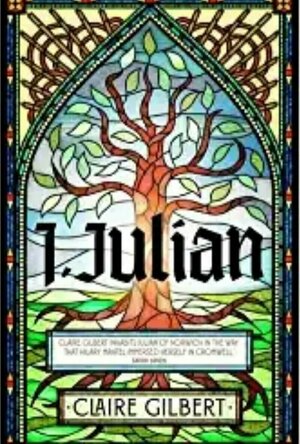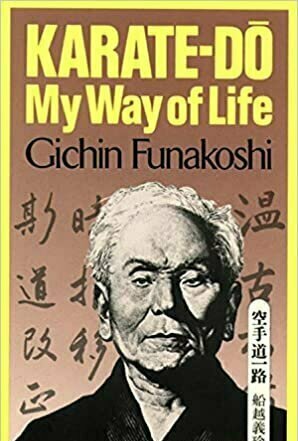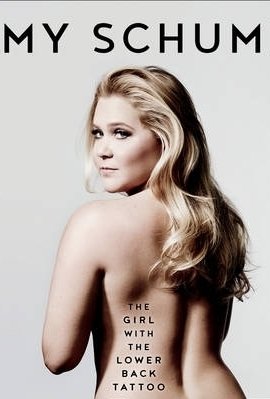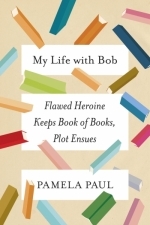This novel imagines, what the autobiography of Julian of Norwich would be like. Julian was born in the mid-1300s, and after some serious losses during periods of pestilence - her father and then husband and daughter - she decides that she doesn’t want to remarry.
When she becomes very I’ll and almost dies, Julian experiences visions of God, and decides that she will devote her life to prayer. When a position as an anchorite in Norwich Cathedral becomes available, Julian Starts to prepare.
I found this an absolutely fascinating read. Basically, as an anchorite, you become dead to the world. You go to your own funeral wearing a shroud, and then you’re taken into a room where the door is bricked up. Your only contact with the world is through two small windows: one is for contact with a servant (you need to be able to afford one - they feed and clothe you, and pass cleaning materials as well through hole), the other opens on to the altar in the church. You pray, you listen to penitents or people wanting to confess, and your speak to your confessor (how on earth would you be able to sin?!). And then you pray more.
Ok, I admit that this review may not sell the book (I hope it does!) to its best advantage, but I really did find it fascinating! The fact that Julian’s faith was so strong that she could lock herself away from the world entirely was so alien to me. To be honest, I would imagine that devoting yourself to the cloistered life as a nun might be more favourable to dying young in childbirth as so many women did then. However, I very much doubt that the life of an anchorite was easy!
This is a thoroughly believable, well-written book. One to be savoured. I loved it.
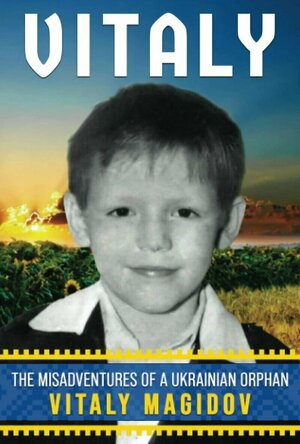
VITALY: The Misadventures of a Ukrainian Orphan
Book
Be Inspired with This True Story About a Ukrainian Orphan That Did Whatever He Could to Chase His...
memoir Ukraine
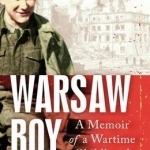
Warsaw Boy: A Memoir of a Wartime Childhood
Book
Warsaw Boy is the remarkable true story of a sixteen-year old boy soldier in war-torn Poland 'The...
Sous Les Ordres de Rommel: Des Deserts D'Afrique Du Nord Aux Plages de Normandie
Hans Holler and Markus Reisner
Book
In this extraordinary autobiography by Hans Holler, an Austrian born in 1921 near Wiener Neustadt,...
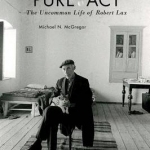
Pure Act: The Uncommon Life of Robert Lax
Book
The only biography to receive awards from both the Association of Catholic Publishers and the...
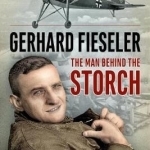
Gerhard Fieseler: The Man Behind the Storch
Book
The Fieseler Storch is the most famous slow-speed aircraft of the Second World War. A remarkably...
Ivana A. | Diary of Difference (1171 KP) rated Karate-Do: My Way of Life in Books
Aug 3, 2020
<a href="https://diaryofdifference.com/">Blog</a>; | <a href="https://www.facebook.com/diaryofdifference/">Facebook</a>; | <a href="https://twitter.com/DiaryDifference">Twitter</a>; | <a href="https://www.instagram.com/diaryofdifference/">Instagram</a>; | <a href="https://www.pinterest.co.uk/diaryofdifference/pins/">Pinterest</a>;
<img src="https://diaryofdifference.com/wp-content/uploads/2020/03/Book-Review-Banner-28.png"/>;
In this autobiography, Karate-Do: My Way of Life, Gichin Funakoshi looks back over his 80+ years of life and tells us the story of where it all began and the important circumstances and decisions that made him become who he has become, alongside with some very thought-provoking stories.
I have had a connection with Karate since I was a toddler. My father is a karate coach and he has taught me the first kata, he has given me the karate-gi and my white belt, alongside with all the belts that came after it, until I got my black belt.
Karate is not just Martial Arts - it is a Way of Life, which is why Gichin Funakoshi named this book Karate-Do: My Way of Life. It is not only those hours that you spend in the dojo that define you, but it is every moment of your life, everything you do, everything you say, every decision you make - it is all Karate.
<b><i>A way of life, respect, value of the little things, dedication, motivation, being good to one another, persistence, curiosity and mentorship.</i></b>
I enjoyed reading Gichin Funakoshi’s stories, and even though I already knew many of them from my father telling me, they still managed to make me think and teach me something new. His writing style is very easy to read and apprehensive.
I personally loved the story where he managed to defeat his opponent by only having stronger confidence, without a single punch.
Honestly, I am so glad I read this book and learned more about the life journey of the very man that was the reason why Karate made its way to Europe. I highly recommend you to read this book if you are a Karate artist or love martial arts. I also recommend this book if you love good autobiographies as well.
<a href="https://amzn.to/2Wi7amb">Wishlist</a>; | <a
<a href="https://diaryofdifference.com/">Blog</a>; | <a href="https://www.facebook.com/diaryofdifference/">Facebook</a>; | <a href="https://twitter.com/DiaryDifference">Twitter</a>; | <a href="https://www.instagram.com/diaryofdifference/">Instagram</a>; | <a href="https://www.pinterest.co.uk/diaryofdifference/pins/">Pinterest</a>;
Kristy H (1252 KP) rated The Girl with the Lower Back Tattoo in Books
Feb 1, 2018
I found this book to be a refreshing and engaging celebrity book. It carried a surprising depth. I don't know a ton about Schumer, but loved <i>Trainwreck</i> and have had a crush on her for ages. That crush has only intensified upon reading her book, as I discovered several similarities between us: introverts who love hotdogs and have complicated relationships with their mothers, who both internalize stress to the point where it makes us sick. We're a match made in heaven! But, seriously, Schumer is an excellent writer, and her book is an easy read, with well-written and wonderful essays that range from humorous to serious (and often both).
Her book avoided all of my usual celebrity autobiography/memoir/essay pet peeves. In this book, we really learn about Schumer, instead of just a few token stories. I was fascinated to hear about her career trajectory: you get a great look into how hard she worked in her early years as a comedian. In addition, we actually get a lot of insight into her early life-- her childhood and teenage years. What I love is that she comes across as a real human being, instead of giving us a book that is simply full of polished, trite jokes and well-worn stories.
In fact, while parts of the book make you laugh out loud, other places make you empathize with Schumer. The book is funny, but not too funny or fake funny. And it's serious without preaching. She covers topics such as sexual assault, gun control, her father's MS, her relationship with her parents, and other serious childhood experiences that molded her, with a realism that is refreshing. Sure, there are a few "woe is me" moments about how hard it is to be a celebrity, or what it's like to have money, but they are few and far between. By the end, I admired Amy even more as a person and a comedian, and my crush will continue on stronger than ever.
Goddess in the Stacks (553 KP) rated My Life with Bob in Books
Sep 13, 2018
My Life with Bob is about the author's reading life. Bob is a notebook she uses to keep track of what she's read. Just title and author, and whether or not she's finished it. Very simple. But in looking back through what she's read, she recalls where she was, and what she was doing or going through at the time. So the real story is how her reading choices fit into her life, and how being a bookworm affected her life.
I enjoyed the book, with the slight irritation (in the latter part of the book) of her insistence on calling Young Adult literature, Children's Lit. Children's books are picture books and books for young readers, not The Fault in Our Stars and The Hunger Games. Those are Young Adult, and there's a pretty big difference in my opinion. Maybe not in the professional world; she is the editor of The New York Times Book Review. But it's frustrating to hear her talk about Kid Lit and lump Harry Potter in with a 36-page autobiography of a teddy bear written for kids under 10.
I was also a little shocked to learn (in the book!) she wrote a book about how porn is destroying the American family, and testified before Congress about it, sponsored by Senators Orrin Hatch and Sam Brownback. I normally don't have a problem reading Republican authors - I often don't know the exact political leanings of authors - but I'm reading about her reading choices, and suddenly they are all suspect. (She disliked Ayn Rand, at least, so that's something.) The book was published in May of last year, so after the last presidential election. Anyone who acknowledges working with the GOP at this point, and isn't embarrassed by it, immediately gets a black mark in my book.
So ultimately I'm torn on this book. I liked reading it. I dislike the author. (I will never even try to be non-political on this blog. Sorry-not-sorry.)
You can find all my reviews at http://goddessinthestacks.com
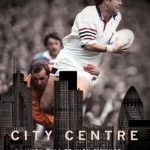
City Centre
Simon J. Halliday and Clive Woodward
Book
Simon Halliday has tackled everything that life has thrown at him, be it on the rugby field, or in...
